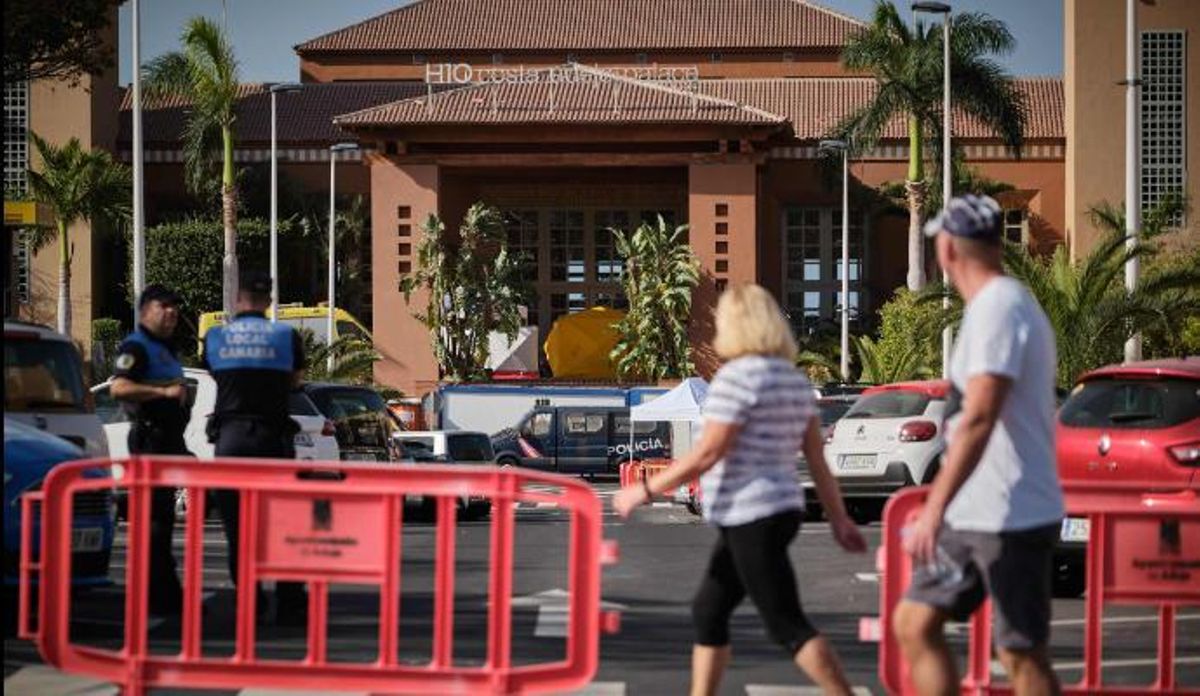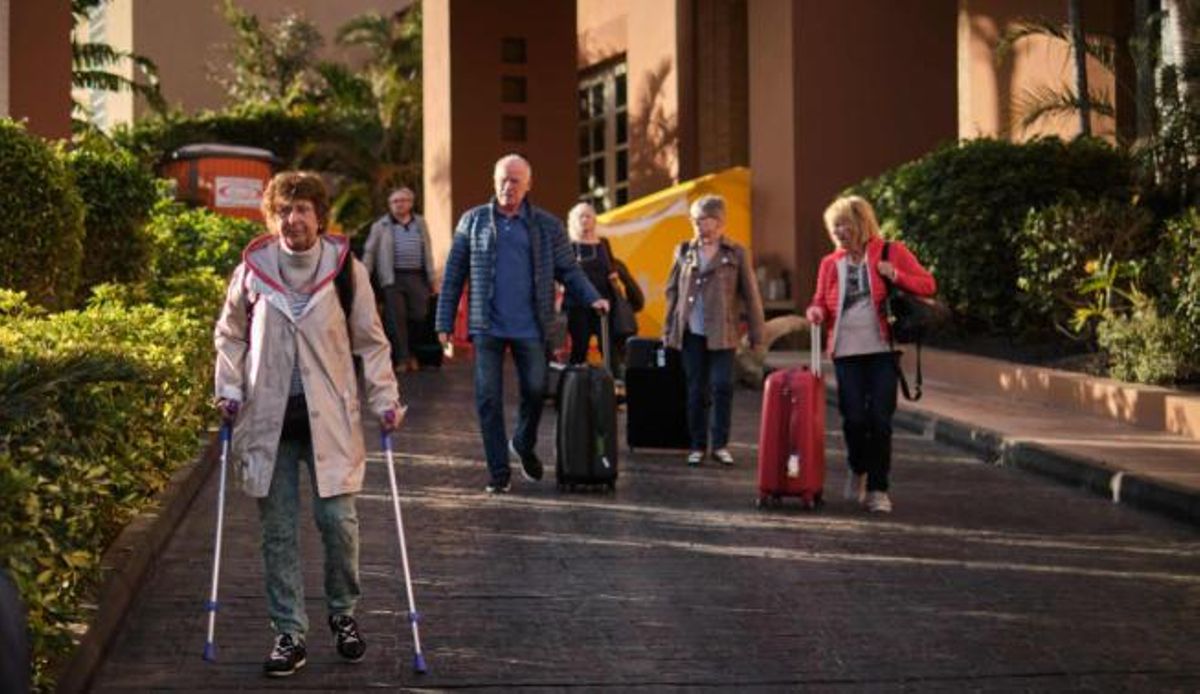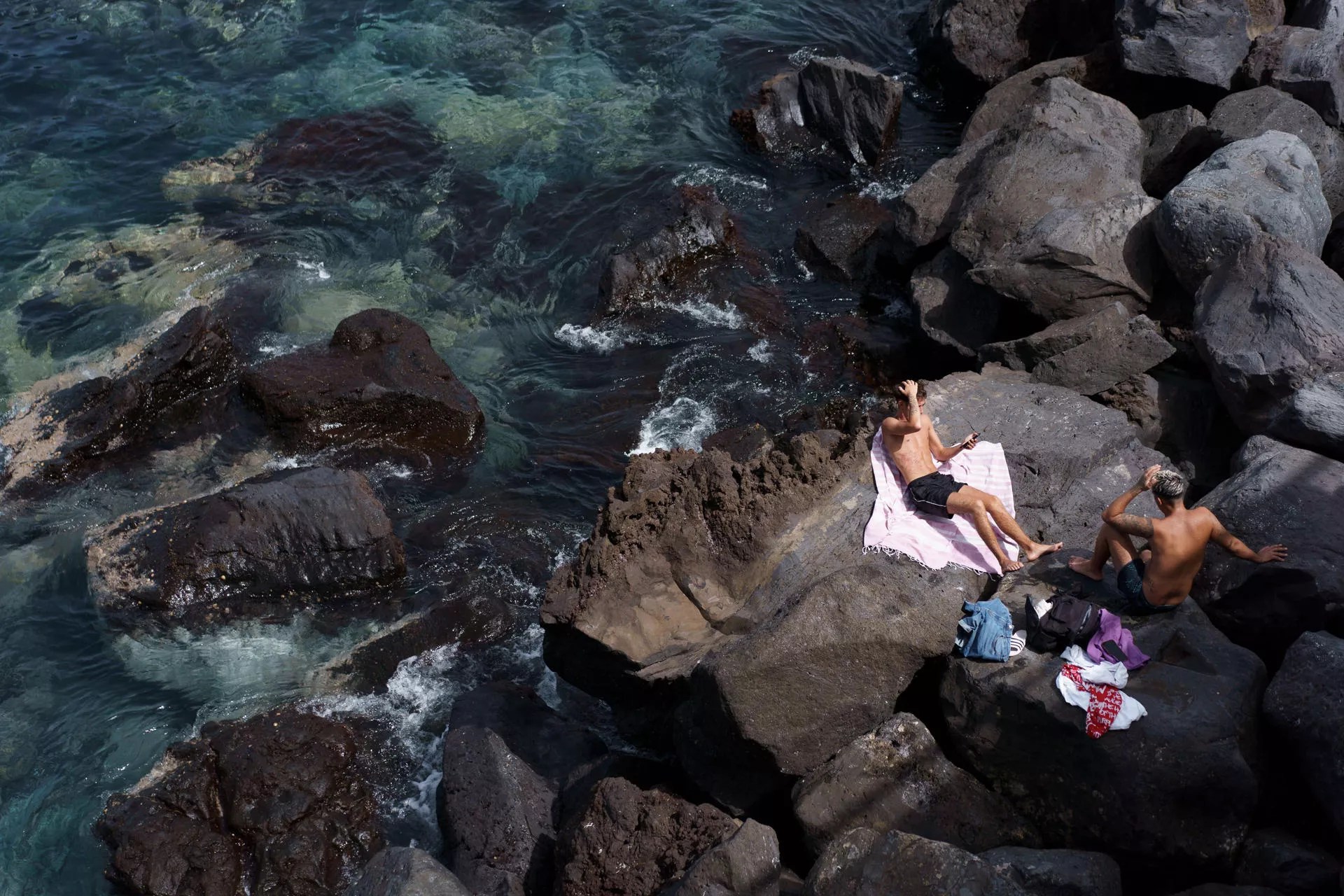On February 24, 2020, when Spain had only recorded two cases of COVID-19, a hotel in the south of Tenerife became the focus of national and international media: a 61-year-old Italian holidaymaker staying there with nine friends tested positive.
The government of the Canary Islands took a drastic measure, closing the H10 Costa Adeje hotel with around a thousand individuals inside, including guests and staff, for a duration of two weeks.
Several accounts gathered by EFE recount, five years later, the behind-the-scenes story of those fourteen days of quarantine that preceded everything that ensued.
Amós García, then head of the Epidemiology Unit in the Canary Islands, acknowledges that the decision to shut the hotel was “extremely challenging in a community dependent on tourism”, yet from a health perspective, “we were certain: it was the best method to ensure that the outbreak did not spread from there.“
At that moment, he admits, “we presumed” that Covid-19 “was similar to the flu”, and “not to belittle it,” but because the information coming from China “indicated as such.”

Entrance of H10 Costa Adeje Hotel during the lockdown / Andrés Gutiérrez
Death Threats
For the former director of Security and Emergency of the Government of the Canary Islands, Gustavo Armas, this decision led to receiving numerous threatening messages, including some death threats, on his personal phone.
He details that to ensure no one left the hotel, three security measures were put in place: the first was overseen by the Canarian police, the second by the National Police, and the third by the Local Police of Adeje.
In addition to external monitoring, there were internal surveillance teams, with undercover officers dressed in personal protective equipment (PPE), monitoring the dynamics among such a diverse group, which included around 200 children.
Armas recalls that, overall, the behaviour of guests during the entire fourteen days of confinement “was exemplary, barring a few exceptions.”
Among these exceptions, he points out that some hotel patrons, having had a bit too much to drink, attempted to escape by climbing walls or jumping from bars, although their escapade didn’t last long.
“Some guests were quite lively at night,” he remembers, notably a German tourist who, at dawn, began singing loudly, disrupting the rest of the guests, and required repeated persuasion to go to bed.
Others “took on the role of correspondents” for television programmes that were providing live coverage of the hotel lockdown.
Romances and Disagreements
This period of enforced togetherness also led to romances, including that of a Canarian guest who “fell head over heels” for a Brazilian woman and refused to leave the hotel after they underwent Covid tests that returned negative results.
A judge had allowed residents of the islands to complete their quarantine in their homes if they were not infected with the virus.
However, for this gentleman, staying in the hotel “felt like a honeymoon,” a desire that was happily fulfilled, recalls the former security and emergency director with a smile.
A pregnant Ukrainian woman at eight months was provided with a gynaecologist for ongoing care, while a British tourist requested to be allowed to leave as her bypass had expired and needed renewal.
The Canary authorities contacted a hospital in North Carolina, United States, where the procedure had been performed, and with the device reference confirmed that it could last another month.
Gustavo Armas remembers that once the quarantine was completed at the hotel and tourists were beginning to return to their homes, a couple who had argued the night before caused a flight to Amsterdam to be delayed for over an hour.
The woman was claiming at the airport that her husband had Covid and she was going to infect the entire aircraft. After several attempts, including a call to the control tower, and faced with the impossibility of further delaying the flight, it was decided that they would be left behind.

A group of tourists leaving the H10 Costa Adeje Palace after completing their quarantine. / Andrés Gutiérrez
From a Personal Perspective
A direct witness to the events inside the hotel was José María Sánchez, who intended to spend four nights away from the hustle and bustle of Carnival with his now ex-wife and their eight-year-old son. Ultimately, they stayed an additional five nights due to the virus’s interference.
Sánchez, head of the Forest Fire Section at the Cabildo de Tenerife, had to pause his holiday to attend an emergency committee due to a severe episode of Calima coinciding with a fire in the north of the island. There, he collaborated closely with political leaders and response teams.
“If I had been infected, it would have been a complete disaster for the government,” he speculates.
The following day he returned to the hotel and began confinement. Everything that unfolded thereafter, he reflects, “felt akin to a science fiction film.”
Each night, hotel staff slid brochures under room doors informing guests to remain in their rooms, where their meals were served.
At this point, when gloves and masks began to be distributed – he believes they were required throughout their stay – guests were allowed to leave their rooms and utilise other hotel amenities, with scheduled times for dining and medical check-ups.
He thinks that “considering the lack of understanding” there was at that time about the illness, its transmission routes, and protective measures, “they managed quite well” at the hotel, whose staff “gave their all.”
“The Worst of Humanity”
Conversely, he laments witnessing “some rather unpleasant behaviours.” He recalled being threatened with arrest if he did not calm down and return to his room.
One aspect that particularly surprised him during those days of confinement was the open bar. He observed that some guests, “after dinner, would take two bottles back to their rooms.”
One day he questioned the hotel director about whether this was not counterproductive, to which he replied that, on the contrary, if they cut off the supply there was a risk of “mutiny.”
Another time, at the hotel restaurant, when guests were queuing, a woman lunged at her son and snatched the portion of chips meant for him. A staff member witnessed the incident and promptly provided an entire serving for the child.
Beyond these specific incidents, he is grateful that they were quarantined in a four-star hotel because “being in a bus station or an airport brings out… the worst in humanity.”
He notes that when they returned home, neighbours were “suspicious” as they had not seen the family come or go for several days. They did not speak of their experience at the school for fear of being given “a hard time.”
After completing their home quarantine and beginning “normal life,” only three days passed before the government declared a state of emergency.
“Never in our wildest dreams could we have envisioned what happened next,” confesses José María, who believes that if a situation like the one in the Tenerife hotel were to arise again, the scene would be “entirely different. Panic would ensue.”















